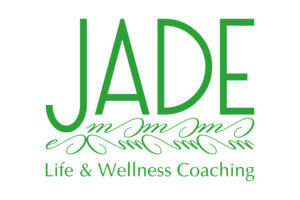We were graciously invited to attend Adsan Law’s Adsan Conversations: Going Green Sustainability Conference 2025 earlier this year!
The conference was an engaging and eye-opening experience that highlighted how sustainability extends far beyond just environmental concerns. It emphasized the equal importance of the Social and Governance aspects of ESG, illustrated through real-life case studies of companies facing serious consequences for ignoring ESG principles. We gained valuable insights into Singapore’s evolving legislation and policies aimed at aligning with global ESG standards. A lively panel discussion followed, where speakers candidly shared their entrepreneurial experiences and the complexities of financing in the ESG space. The event concluded with a delicious lunch and a hands-on session with Semula, where participants watched waste plastic being upcycled into practical items like carabiners and coasters—bringing sustainability to life in a tangible way.
If you’re a coach, trainer, mentor, or someone in the personal development space, you might have seen the acronym ESG tossed around—maybe in reports, funding proposals, or client conversations. And it’s easy to assume it’s something meant for massive corporations. But here’s the thing: even if you’re not running a factory or managing a portfolio, ESG matters to you too—and it may already be showing up in your work more than you think.
Let’s unpack what ESG really means, and why it might just be a fresh perspective that strengthens your practice, clarifies your values, and expands your impact.
E is for Environmental — and Yes, It Still Applies
The environmental aspect of ESG is often thought of in large-scale terms—carbon emissions, fossil fuels, deforestation. But environmental responsibility is also about the everyday choices we make in how we operate. In person-centered businesses, the footprint might be smaller, but the intention still matters.
Are your services mostly digital? Do you offer hybrid options to reduce travel? Have you moved away from printed materials, or considered suppliers who share your values around sustainability? Even simple shifts—like reducing physical waste at events or choosing eco-conscious tools—demonstrate that you’re thinking about your role in the larger ecosystem.
Clients today, especially those from mission-driven organizations, increasingly pay attention to how their service providers align with environmental values. It’s less about perfection, and more about awareness and integrity in how you show up for the planet.
S is for Social — This Might Be the Heart of Your Work
If there’s one ESG pillar that aligns most naturally with coaching, mentoring, and training, it’s this one. The “social” component of ESG is all about people—equity, wellbeing, inclusion, empowerment. And that’s exactly where human-centered work lives.
But ESG invites us to look at how we do this work. Who are we including, and who might be left out? Are we creating spaces that are not just welcoming, but also safe, inclusive, and responsive to different identities and lived experiences? Are our services accessible—financially, physically, and culturally?
Many people in this field are already doing incredible work on a personal level. ESG encourages us to name that impact, track it, and frame it in ways that resonate beyond the individual client relationship. This becomes especially important if you’re seeking partnerships, funding, or collaboration with organizations who want to see social impact reflected clearly and consistently.
G is for Governance — Not Just for Corporates
Governance might sound like something for boardrooms and legal departments, but at its core, it’s about how you run your practice. Are your policies clear? Do you have systems in place to protect client data? Are you practicing informed consent, maintaining strong ethical boundaries, and providing avenues for feedback?
These things may feel like background work—but they’re what make your business trustworthy. Good governance is the structure that holds your values in place. It’s the difference between having good intentions and having professional practices that clients and collaborators can rely on.
For small or solo practitioners, this could mean putting your values into writing, updating your client onboarding process, or establishing a rhythm of reflection and professional accountability. It’s not about being perfect—it’s about being consistent and responsible.
So Why Should You Care About ESG?
ESG is actually less about ticking boxes, and more about aligning your business with the values you already hold—and showing the world that you’re doing it with purpose. When you embed ESG into your mindset and operations, you build a foundation that’s stronger, more transparent, and more appealing to clients, collaborators, and funders alike.
It also signals that you’re future-facing. More companies and institutions are prioritizing ESG in how they choose vendors, coaches, consultants, and trainers. By speaking their language—authentically and in your own voice—you open doors to deeper partnerships and more meaningful work.
Start Small, Stay Aligned
Getting started is easy. Take stock of what you’re already doing well, where you want to grow, and how you want to show up—not just for your clients, but for your community and the world around you.
It’s not about turning your practice into a corporation. It’s about always leading with your values first — to build a business that reflects the care, consciousness, and responsibility you already bring to your clients, every day.
If you are interested in learning coaching skills, get started with our SFC-eligible (SkillsFuture Credit) course here.









Leave a Reply
Your email is safe with us.